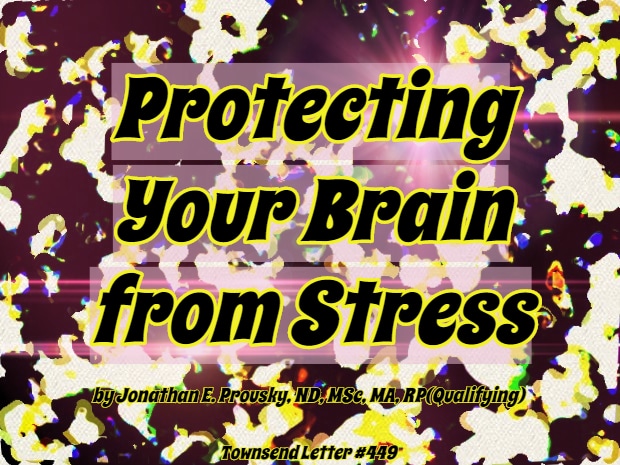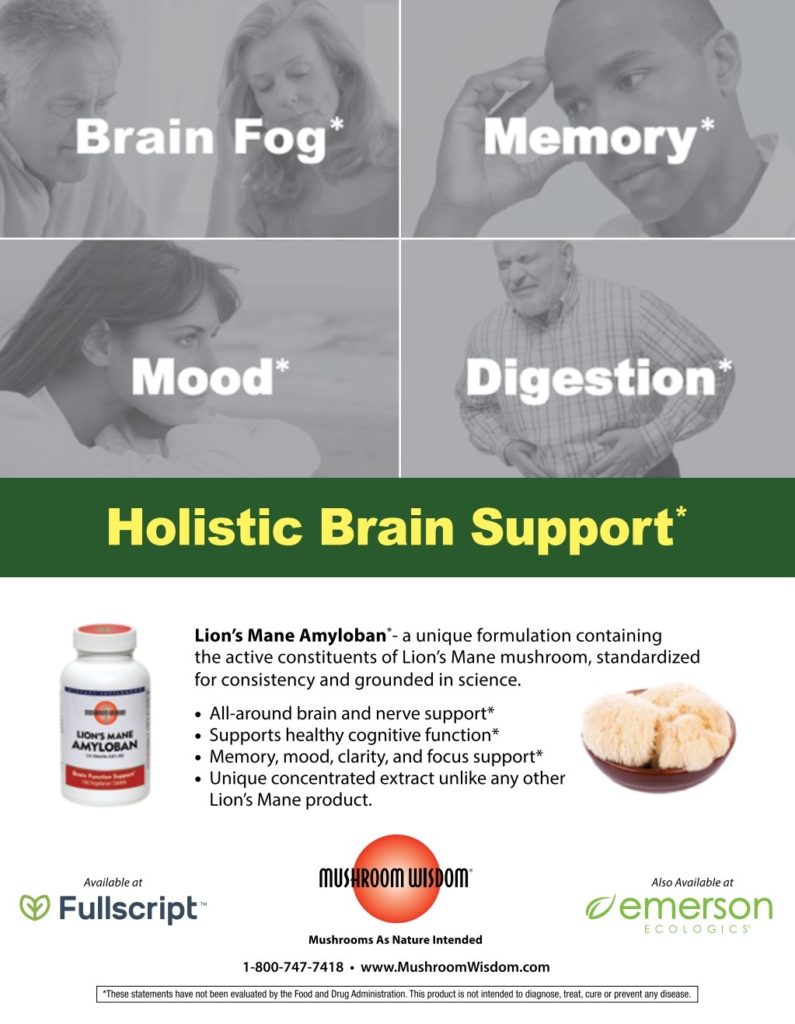Jonathan E. Prousky, ND, MSc, MA, RP(Qualifying)
Professor, Chief Naturopathic Medical Officer
Canadian College of Naturopathic Medicine
More Lifestyle Modifications to Lessen the Impacts of Chronic Stress
Meditation. Mindfulness meditation should be offered to patients as a durable treatment that assists with stress management by improving emotional regulation. This particular type of meditation, “is premised on stabilizing attention, acknowledging discursive sensory events as ‘momentary’ and ‘releasing’ them without affective reaction” (p.751).97 The benefits of mindfulness meditation can be experienced rather quickly even when it is practiced for short periods of time. Some examples from the published literature will be cited as proof of the quick benefits that can be ascribed to mindfulness meditation.
For example, a study demonstrated that just four sessions of mindfulness meditation (i.e., 20 minutes/session) over four consecutive days modulated areas of the brain responsible for state anxiety (i.e., the anterior cingulate cortex, anterior insula, and the PFC area known as the ventromedial PFC). The changes in this PFC area presumably reflected changes in cognitive reappraisal processes, and in down-regulating negative emotions, such as amygdala activity.97
In another study, 13 novice university students were given eight weeks of mindfulness meditation with daily practice at home in sessions lasting around 45 minutes.98 Before and after ratings of depression and anxiety demonstrated a significant reduction in depression scores after meditation training, and a significant reduction in trait anxiety but not in state anxiety scores following meditation training. Moreover, the significant reductions in depression scores were shown to reflect changes in the resting state functional connectivity of particular brain regions implicated in depression. In other words, meditation training uncoupled certain brain areas that tend to be coupled (i.e., hyperconnected) in major depression, and this was presumed to be the antidepressant effect attributed to mindfulness meditation.
With respect to amygdala activity, another study showed that short-term mindfulness meditation (i.e., 8 weeks) resulted in increased functional connectivity between the amygdala and the ventromedial PFC.99 The results demonstrated that mindfulness meditation assisted with emotional regulation by reducing amygdala reactivity, and increasing the coupling or functional connectivity between the amygdala and PFC when challenged with affective stimuli. This positive benefit attributed to mindfulness meditation in this study was shown to happen over the short-term, as evidenced by modulating the connectivity between these brain structures. Overall, it appears that short-term mindfulness meditation can produce symptomatic reductions in anxiety and depressive symptoms by altering the way the brain operates and responds to emotional stimuli.
With respect to markers of physiological stress, mindfulness meditation, including other types of meditation, were shown in a systematic review and meta-analysis to decrease biomarkers of stress (i.e., cortisol, blood pressure, heart-rate, lipids and peripheral cytokine expression) in a range of populations.100 When evaluated in aggregate, all meditation types reduced cortisol, C-reactive protein, blood pressure, heart rate, triglycerides, and tumor necrosis factor-alpha.
Mindfulness meditation was highlighted here because it is among the most popular types of meditation available. It has a rapidly evolving literature base supporting its efficacy as a durable treatment with therapeutic effects happening rather quickly with consistent daily practice (i.e., for as little as 20 minutes/day).
Sleep. Numerous research publications have repeatedly shown deleterious impacts on health when people suffer from chronic insomnia. Among the many factors implicated in chronic insomnia, stressful life events, personality patterns, and psychiatric diagnoses are more etiological in both the development and persistence of chronic insomnia.101 In terms of stressful life events, insomniacs report less satisfying interpersonal relationships and poor self-concepts, which result in poor coping ability and problems with stress management. Insomniacs also have high levels of psychopathology as evidenced by high scores in depression, hysteria, and psychasthenia as measured by the Minnesota Multiphasic Personality Inventory. As a result, the personality traits of individuals with chronic insomnia include problems with the expression of anger, depressed mood, chronic anxiety, rumination, and with the inhibition of emotions. Having chronic insomnia and a psychiatric illness is also really common, and sometimes the presenting symptom of an undiagnosed psychiatric illness are sleep problems. In chronic insomnia, mood disorders dominate (i.e., dysthymic disorder, major depression disorder, bipolar disorder, and cyclothymic disorder), followed by anxiety disorders, and substance abuse disorders.
A possible mediator of chronic insomnia is that of high sleep reactivity, which “is the degree to which a stressor (broadly defined) disrupts sleep,” and “behaviourally, sleep reactivity is the degree to which individuals exhibit acute sleep-disruptive responses to stress” (p,3-4).102 Among individuals with chronic insomnia, usually a major stressor happens at some point, and then an insomnia disorder mediated by high sleep reactivity develops shortly thereafter. It is probable then that many chronic insomniacs have the high sleep reactivity phenotype. Precisely what influences high sleep reactivity is evolving, but female gender, familial history of insomnia, genetics, and environmental stress all impact upon how an individual’s sleep system reacts to stress. Moreover, the etiological links to high sleep reactivity include “disrupted cortical networks and dysregulation in the autonomic nervous system and hypothalamic-pituitary adrenal axis” (p.1).102
In terms of the brain, in a small pilot study hippocampal volumes were shown to be decreased among patients with chronic insomnia.103 This was a significant finding since this area of the brain is involved in learning and memory processes. A larger study found hippocampal atrophy among chronic insomniacs, which was also associated with impaired cognitive function.104 These findings were significant as more current research identified that even one night of sleep deprivation makes it difficult for the brain to clear beta-amyloid (i.e., known as the brain beta-amyloid burden), which is a metabolic waste product that has clear correlations to the development of Alzheimer’s disease.105 The study hypothesized that the increased brain beta-amyloid burden in the hippocampus due to sleep disruptions might result in local neurotoxicity but without “necessarily resulting in marked plaque accumulation” (p.4486).105
Ensuring that sleep becomes restful and rejuvenating must therefore be a priority when working with chronically stressed patients. It is imperative then that good sleep is achieved. Good sleep “is characterized by subjective satisfaction, appropriate timing, adequate duration, high efficiency, and sustained alertness during waking hours” (p.12).106 Achieving good sleep, therefore, depends on achieving with consistency the following targets: regularly waking up and falling asleep at around the same times (i.e., within an hour) each day; feeling satisfied from sleep; being alert/awake during the day after a night’s sleep without any napping; being asleep during the night and not struggling to remain asleep especially between 2AM and 4AM; having less than 30-minutes of total awake time during sleep (i.e., which includes falling asleep and awakenings during the night); and having a sleep duration of around 7-9 hours each day.106,107
Helping patients to achieve good sleep depends on their adherence to proper sleep hygiene practices and ensuring that stimulus control is being followed. To learn more about sleep hygiene, see the following reference,108 or the Sleep Foundation link: https://www.sleepfoundation.org/. For stimulus control, please refer to this article on the Somnology website: https://www.somnologymd.com/2015/05/stimulus-control-therapy/.








